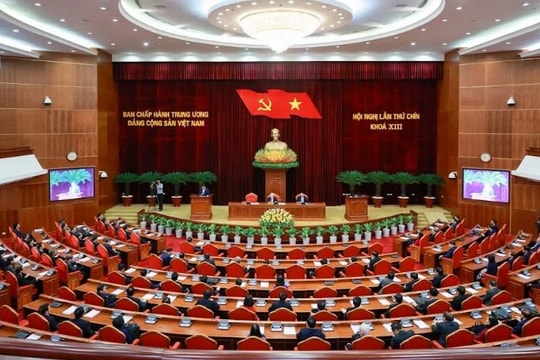Peer Pressure: Invisible or Visible?
"Peer pressure" may sound a bit textbook, but it's actually something that all of us, especially young people, have experienced.

It is the feeling of being influenced, sometimes without realizing it, by people around who are of the same age, same job, same social position; especially in places where hierarchy, stability, and traditional values are still strong. This pressure on young people becomes a multifaceted, complex problem, requiring thorough analysis.
Is this just something vague in their mind, or has it become a real burden, affecting their development, happiness and even their productivity?
In my opinion, this pressure is both invisible and very obvious. It is elusive in that it is not easy to realize that we are being affected, but it is very specific in what young people show and the consequences they have to bear. It is constantly creeping into the minds of young people through the way they perceive life, compare themselves to others and try to build their self-image.
One of the most obvious things is that we often compare ourselves with those around us. This is a very natural thing in human psychology. We often look at our colleagues and friends to see where we are. Some people compare themselves with those who are better than them to have motivation to try harder, others look down on those who are worse than them to feel better.
But in agencies and units - where promotion is often based on qualifications, seniority and achievements, young people tend to look up and compare themselves with those who have succeeded.
Stories about colleagues being rewarded, being promoted... although they may be good things, can easily make young people feel "slow", "incompetent", or even dissatisfied with themselves and their current jobs.
Social media today complicates this even more. Sites like Facebook and Instagram tend to only show the good, successful sides of people. Their algorithms seem to prioritize the positive, creating a picture of life that is not entirely true. Young people who see these images often find themselves feeling inadequate, only paying attention to information that makes them feel worse, forgetting about their own efforts and achievements.
In addition, peer pressure is also reflected in young people trying to do what people around them consider to be right. It could be having to "integrate" into the way the agency or unit works, having to participate in common activities, having to "be considerate" with superiors... to be accepted and not be considered an outsider. This is especially true for those who are new to work, when they want to be recognized by everyone and build a professional image. Trying to do things that are not suitable for their personality can lead to stress, fatigue and gradually losing interest in the job.
However, in my opinion, peer pressure is not always a bad thing. If properly directed, it can become a driving force for young people to learn, compete healthily with their peers and develop themselves. It can also create cohesion, when people feel they belong to a group.
The key here is to find a balance between pressure and freedom. When pressure becomes too great, it will hinder development and make people feel tired. But if we know how to control and utilize it properly, it can help us progress.

To help young people cope effectively with peer pressure, it is necessary to have the cooperation of individuals, organizations and society. There is no single solution that can be applied to all cases, but rather requires flexibility and adjustment to suit each situation.
On a personal level, it is important for young people to understand themselves. Ask yourself what is really important to you, what goals you want to achieve, rather than just looking at external standards. Taking time to think about yourself and your thoughts can be very helpful.
In addition, learning to manage emotions and cope with stress is an indispensable skill. Simple methods such as deep breathing, exercising, or spending time on personal hobbies can also help reduce pressure.
It is also important to build self-esteem and self-confidence. Instead of focusing on your weaknesses, acknowledge even the smallest successes and learn to accept yourself for who you are.
In my opinion, for agencies, units and organizations, it is necessary to create a working environment where people can cooperate, share and respect each other's differences, instead of focusing on competition and comparison. This can start with frank conversations between leaders and employees, encouraging everyone to contribute ideas and creating psychological support channels.
It is also important to innovate the way of evaluating human resource quality. Instead of relying only on qualifications and seniority, it should be evaluated based on actual capacity and work results. In addition, creating opportunities for young people to learn and develop themselves is also an indispensable factor.
As a society, I think there needs to be a shift in how we view success and value. Instead of just valuing things like degrees, status or money, society should celebrate the diversity of paths to success and positive contributions to the community, regardless of position.
To solve the problem of peer pressure, efforts from many sides are needed. Most importantly, each young person needs to remember that they have the right to choose their own path, be true to themselves and not let pressure from others take away the joy and happiness in life.

.jpg)


.jpeg)



